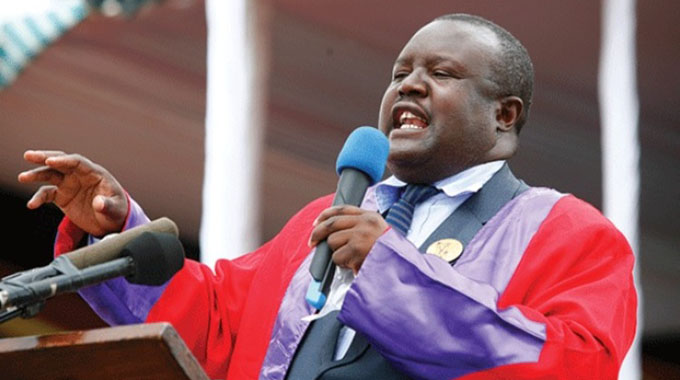Ministries eclipsing our role: Chiefs

Takunda Maodza
THE role of chiefs is being eclipsed by Government ministries.
This was said by the Zimbabwe Council of Chiefs president Chief Fortune Charumbira during a strategic planning workshop in Mutare.
“Our functions and roles are not contestable. They are not subject to negotiation.
“They have existed since pre-colonial times. Of course during the colonial times an attempt was made to undermine and even to abolish the institution of chiefs. The colonial government failed,” he said.
Chief Charumbira said at Independence, Government embraced the institution of chiefs, but challenges of derailing their role persist.
“Fortunately after Independence, the institution was well-embraced in the laws.
“We have the Traditional Leaders Act which empowers us to preside over courts.
“The Constitution, as you are aware (Chapter 15), gives us mandate ranging from facilitating development, resolving disputes, land administration and anything you can imagine about the community,” added Chief Charumbira.
“The purpose we are meeting here is to ensure that we communicate with the public.
“They need to know that as traditional leaders, we actually have a mandate where we link with almost every ministry.
“We are also facilitating police work. You also cannot talk of agricultural land without working with traditional leaders. When you go to the environment, we conserve the forestries, including minerals.
“The traditional leaders are involved. No ministry can go outside to implement any development without the chiefs.
“You should know that education, health, all those rely on us to develop those schools and even manage in terms of encouraging community members to mobilise resources and even manpower.”
He said their role was more pronounced in the Judiciary.
“We dispense cases far more than all the magistrates in the country, but when you talk of what the Ministry of Justice has done or the Judiciary has done this year, they talk of what the Constitutional Court, Supreme Court, High Court and other courts like Labour Court, yet we are part of the Judiciary in terms of the Constitution,” said Chief Charumbira.
He said the majority of Zimbabweans live in rural areas.
“More than 70 percent have immediate access to justice, and not from magistrates’ courts.
“The role we have been playing has been eclipsed or camouflaged by ministries. We are the ones protecting resources, but you then praise the Ministry of Environment or EMA, yet it is the village head on the ground enforcing it,” said Chief Charumbira.
He said it was time the nation appreciated the role of traditional leadership as it has a place in a democracy.
“In South Africa, there are chiefs with even more powers than us, but you do not hear noise why they exist, and why they are being supported and unlike in Zimbabwe, the chiefs in South Africa are in Parliament and belong to political parties.
“We have no chief who is in Parliament through a political party, but in South Africa the head of chiefs is in Parliament on an ANC ticket and is a minister, but it is not an issue in South Africa that he is an ANC person,” he said.
Chief Charumbira said the institution was not clamouring for similar rights.
“We like our arrangement where we go in (Parliament) as chiefs. We are here to serve everybody, all Zimbabweans from all walks of life, from whichever political party, we do not mind.
“We are here to serve every citizen of Zimbabwe — black or white, whatever tribe.”
He denied claims that traditional leaders were partisan.










Comments